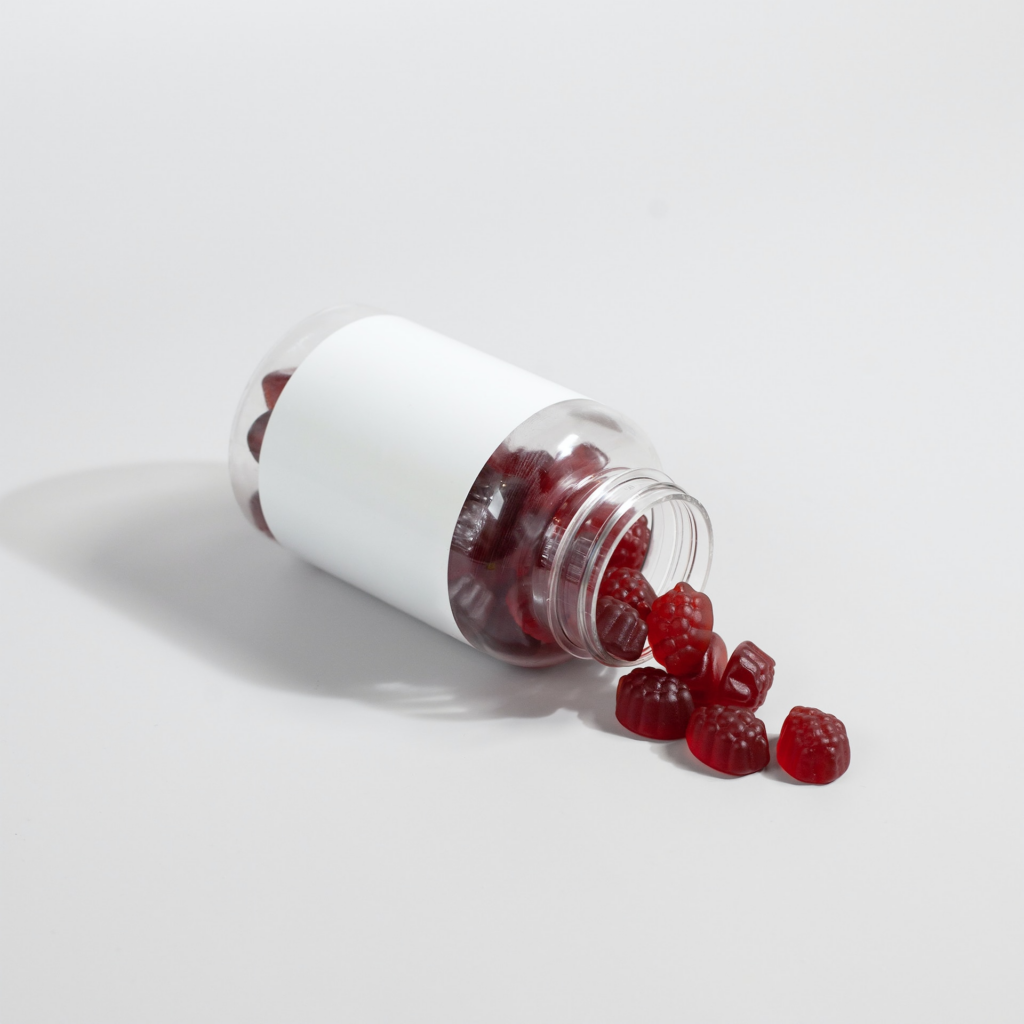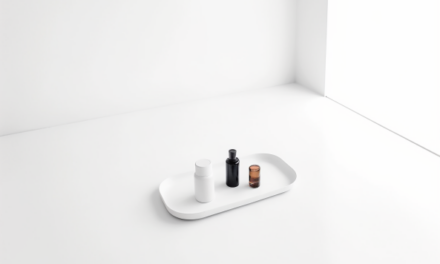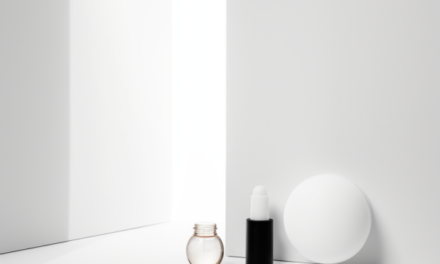Do Collagen Supplements Work for Skin?
In recent years, collagen supplements have gained popularity for reducing signs of skin aging and improving skin health. But do they actually work? In this post, we will discuss the evidence from randomized, double-blind, and controlled trials that have evaluated oral supplementation with hydrolyzed collagen for improving skin hydration, reducing wrinkles, and improving elasticity.

What is hydrolyzed collagen?
Hydrolyzed collagen is a type of collagen that has been broken down into smaller molecules, making it easier for the body to absorb. Studies have shown that different types of collagen supplements can help promote skin health, and hydrolyzed collagen is more effective due to its easier absorption by the body.
What do studies show?
In a thorough study from 2021, researchers analyzed 19 different trials that tested the effects of hydrolyzed collagen supplementation on skin health. These studies were conducted with over 1,100 participants, mostly women aged between 20 and 70. Despite some questions regarding the methodology, the broad conclusion was clear: individuals who consumed hydrolyzed collagen for three months witnessed improvements in skin hydration, firmness, and the appearance of wrinkles. In other words, supplementing with hydrolyzed collagen can be an effective way to reduce signs of aging on the skin.
An additional interesting finding is that Coenzyme Q10 can work together with collagen supplements, improving their effect on the skin.
While collagen supplementation does seem to reduce wrinkles, the researchers are not entirely sure whether this occurs due to changes in the skin collagen matrix or because of the improvement in skin hydration. Most likely, both factors play a role.
How much hydrolyzed collagen was taken in the studies?
The daily dosage of hydrolyzed collagen in the studies ranged from 2.5 to 12 grams.
How long do collagen supplements take to work?
According to the studies, the first effects on skin appear after 60 days of daily supplementation and improve further until at least 90 days. The effect was maintained for 30 days after the supplementation course ended.
Does the source of collagen matter?
Yes, and the exact composition of the supplement—such as what peptides it includes and in what amount—is crucial. All collagen supplements come from animal sources; vegan collagen does not exist.
If you see “vegan” on a collagen supplement label, you know it’s a hoax.
Most supplements use collagen sourced from cows, called “bovine,” and usually extracted from by-products of the beef industry, such as skin and bones. Bovine collagen is rich in types I and III, which make up the bulk of our skin and is believed to be ideal for it; however, current research has yet to confirm this hypothesis.
Marine collagen comes from fish skin and scales, such as cod or snapper, and has similar benefits to those of bovine for skin, gut, and bones.
Poultry collagen, sourced from chicken cartilage, bones, and eggshell membrane, contains type II collagen which is likely to be most beneficial for bone health and joint comfort.
The quality of supplements is important; you will want to seek out reputable brands that are transparent about their supply chain and have third-party verification whenever possible. As for marine collagen, make sure to do your homework on where it is sourced from. Heavy metal contamination can be a concern here, so prioritize manufacturers who share details about their sources and quality control processes.
What about collagen in topical skincare?
Topical skincare products were the first ones to include collagen for its potential benefits skin benefits. Nevertheless, doubts emerged quite quickly as dermatologists questioned the effectiveness of topical application since collagen is not naturally present in the outer layer of the skin. In fact, its fibers are too big to get through. Researchers also found that even shorter chains of collagen known as peptides are not likely to penetrate the skin effectively.
What collagen supplement brands were tested?
-
Ellasten (UK and Europe)
The bottom line
If you are interested in anti-aging skincare or combating dry skin, hydrolyzed collagen supplements are worth a try. None of the reviewed studies reported any adverse effects related to the collagen supplement. Surely, they won’t turn back the clock entirely, but quality hydrolyzed collagen supplements can provide at least a similar benefit to the most anti-aging serums (especially non-retinoid ones 😉).
Choose your products based on actives
WIMJ Search allows you to select skincare products based on what’s inside. Filter products by actives included, and exclude ingredients you don’t want. Check the concentration of ingredients and potential irritants.
Sources
-
Effects of hydrolyzed collagen supplementation on skin aging: a systematic review and meta-analysis https://onlinelibrary.wiley.com/doi/abs/10.1111/ijd.15518
-
Collagen supplementation for skin health: A mechanistic systematic review https://onlinelibrary.wiley.com/doi/abs/10.1111/jocd.13435
-
Oral collagen supplementation for skin aging: A fad or the future? https://onlinelibrary.wiley.com/doi/abs/10.1111/jocd.13096
Related Articles
When Buying Skincare, What Are You Really Paying For?
Ever wondered what’s behind the price tag of your skincare product? Are you just forking out for fancy ingredients and chic packaging? The reality may surprise you. Let’s break it down and see where your money really goes.
Can You Use Retinoids for Rosacea-Prone Skin?
If you’ve been grappling with the frustrating skin condition called rosacea, you may have been advised to steer clear of retinoids. This advice typically stems from concerns that retinoids can further irritate your already inflamed skin. But here’s something that may surprise you: retinoids, in fact, are commonly used in rosacea medical treatments.
The Aging Face: the Brutal Truth About Skincare Limitations
Explore the deeper aspects of aging, beyond skin-deep. Learn how bones, muscles, and fat influence facial changes and understand the limitations of skincare in fighting time. Embrace the natural evolution of your beauty with a fresh perspective.
Can Topical Skincare Improve Skin Elasticity?
Discover the truth about skin elasticity and the effectiveness of topical skincare treatments. Learn about the key components that give our skin its elasticity, why skincare can help to an extent, and the best strategies to protect your skin’s natural firmness
Do You Really Need Custom-Made Skincare?
Custom-made skincare products have become a talking point recently. But are they an essential innovation in skincare or simply a captivating marketing gimmick? This blog post delves into whether personalized skincare truly offers advanced scientific solutions tailored to our unique needs or is it luring us into paying more for seemingly “perfect” products.
Is Skincare A Scam?
Is Skincare a Scam? "Is skincare a scam?", you might wonder after spending $$$ on products that don't work. Or better put, "does the beauty industry turn skincare into a scam?". In many ways, yes - unfortunately. As consumers, we crave innovation, seeking skincare...
How to Start Anti-Aging Skincare?
In this post, we’ll dive into the science behind skin aging and explore the different factors that can impact our skin’s health. We’ll also discuss some of the best skincare strategies to help you start your anti-aging journey and keep your skin looking its best.
Vitamin C (Ascorbic Acid) for Anti-aging
Ascorbic acid, also known as vitamin C, is a powerful anti-aging ingredient that has been extensively researched for its skin benefits. It can help reduce fine lines and wrinkles, fight other signs of photodamage, and reduce hyperpigmentation when used correctly.
Peptides for Anti-Aging
Peptides are a confusing active in skincare. On one hand, we have research that shows that they can work and deliver impressive skin results. On the other hand, there are hundred of different peptide ingredients in skincare products, and some of them can do little more than a simple moisturizer. Read on to learn about the difference.
Niacinamide for Anti-Aging
Anti-AgingNiacinamideVitamin B3. In concentrations from 2%, Niacinamide helps the skin to produce its own antioxidants that in turn fight photo-damage. Niacinamide rarely caused irritation. Most people can use it once or twice daily. Niacinamide can be included in a...



